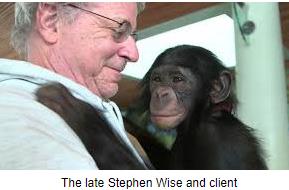 Supported by the Nonhuman Rights Project, the City Council of Ojai passed the “Right to Bodily Liberty for Elephants” Ordinance. This is the first legal recognition of animals having the rights usually extended to humans. Accordingly, elephants cannot be confined within city limits.
Supported by the Nonhuman Rights Project, the City Council of Ojai passed the “Right to Bodily Liberty for Elephants” Ordinance. This is the first legal recognition of animals having the rights usually extended to humans. Accordingly, elephants cannot be confined within city limits.
For four decades, the Nonhuman Rights Project has championed the release of primates and more recently, elephants. Consistently, courts have ruled against the nonprofit refusing to grant habeas corpus rights to animals. The organization maintains that the elephants in the Fresno zoo are held captive ‘against their will for the benefit of human captors” and should be released to a sanctuary. The City of Ojai Ordinance has yet to be challenged and could be ruled unconstitutional.

The success gained by the Nonhuman Rights Project in California was muted by the announcement of the February 15th passing of Stephen Wise,
Founder of the organization in his 73rd year. Wise, a lawyer by profession, graduated from Boston University Law School in 1976. A turning point in his career was the influence of Animal Liberation by Peter Singer, an Australian philosopher. This led to the establishment of the Nonhuman Rights Project in 1995.
Recognition of other than humans as possessing bodily autonomy whether for elephants or nonhuman primates would represent a slippery slope. It could be considered that all livestock is held against their collective will. Granting habeas corpus for a wide range of animals including poultry with courts appointing guardians. This has the potential of destroying livestock production as we know it. This might be acceptable to vegan environmental extremists, but it certainly does not represent the inclinations and lifestyle of the majority of our population.